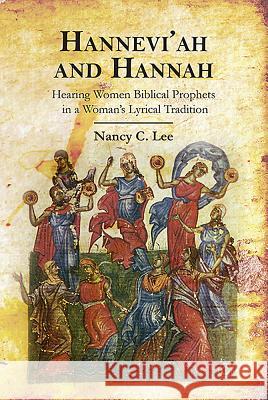Hannevi'ah and Hannah: Hearing Women Biblical Prophets in a Woman's Lyrical Tradition » książka
Hannevi'ah and Hannah: Hearing Women Biblical Prophets in a Woman's Lyrical Tradition
ISBN-13: 9780227175835 / Angielski / Miękka / 2016 / 232 str.
Is it possible to hear women prophets utterances embedded within lyrics of prophetic books? If so, women prophets should be represented as implied composers along with men. A few scholars have raised this question, yet a clear method for discerning women s voices apart from feminine grammatical forms, genres used, and women s perspectives has not been offered. This study offers a reliable method, based on the sound patterns of lyrical Hebrew. It discerns a consistent, clear signature of women s composing more broadly, and a different signature of men s composing, across all lyrical genres and historical periods. This methodological key, when turned, unlocks and throws open a window on a significant women s Hebraic composing tradition, resounding in texts where women s voices are attributed, and where they are unattributed. There are also surprising ramifications here for the biblical narratives composed by women and rooted in oral tradition. Integrating indigenous cultural, postcolonial, feminist, and oral poetic approaches, this inquiry moves past closed doors of previous suppositions, including that ancient Israel was simply patriarchal. It also brings a new appreciation of the practice of female and male prophets lyricising in partnership, in an indigenous culture in which women, individually or as a group, were not always given credit for their contributions."











